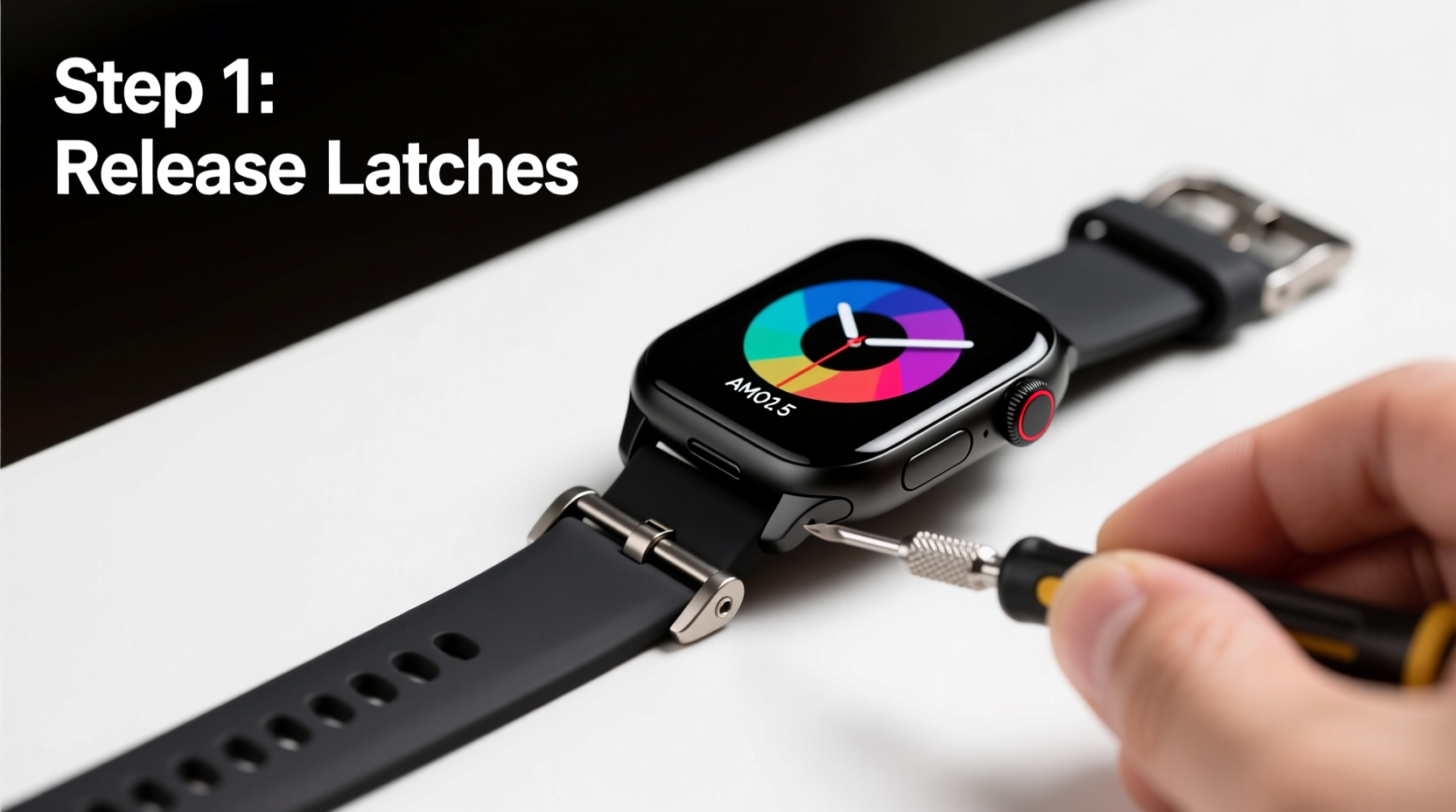The Redmi Watch 5 is designed for comfort, durability, and style—but over time, the original wristband may wear out, stretch, or simply no longer match your personal aesthetic. Replacing the band is one of the easiest upgrades you can make to enhance both comfort and appearance. Unlike older smartwatches that required tools or complex mechanisms, the Redmi Watch 5 uses a standard quick-release pin system that allows for tool-free band changes in under two minutes. Whether you’re switching to a sportier silicone strap, a sleek metal bracelet, or a breathable nylon band, getting the fit right is essential for all-day comfort and accurate health tracking.
Understanding the Redmi Watch 5 Band Mechanism

The Redmi Watch 5 features a 20mm quick-release spring bar system, which is compatible with most third-party bands designed for this size. This mechanism consists of two small spring-loaded pins located on either side of the watch case where the band attaches. When compressed, these pins retract slightly, allowing the band to slide off. The design prioritizes user convenience, eliminating the need for screwdrivers or specialized tools.
It's important to note that not all bands are created equal. While many generic bands claim compatibility, variations in pin diameter or tension can affect stability. Genuine Xiaomi or certified aftermarket bands typically offer the best fit and long-term reliability.
“Proper band alignment and secure attachment prevent accidental detachment during physical activity.” — Lin Zhao, Wearable Device Technician, Shenzhen Smartwear Lab
Step-by-Step Guide to Installing a New Wristband
Follow this detailed sequence to safely remove the old band and install a new one without damaging your device.
- Power down the watch (optional but recommended): While not required, turning off the watch minimizes the risk of accidental input during handling.
- Position the watch face-down: Place it on a soft, clean surface like a microfiber cloth to avoid scratches.
- Locate the release point: On the side of the watch case, find the narrow gap between the band and the housing. You’ll see a small metal pin running through the band lug.
- Compress the spring bar: Using a fingernail, paperclip, or plastic prying tool, gently push the pin inward from the outer side of the watch. Apply steady pressure until the pin retracts about 1–2mm.
- Slide the band off: While holding the pin compressed, pull the band away from the watch body. Repeat on the other side to fully detach the old band.
- Align the new band: Take the replacement band and align its lugs with the watch’s attachment slots. Ensure the smooth side faces outward if applicable (e.g., for leather or textured bands).
- Insert one side first: Slide one end of the new band into the watch lug until the hole aligns with the internal spring bar. You should feel slight resistance as the pin begins to expand.
- Attach the second side: Compress the pin on the opposite side and slide the remaining lug into place. Release the pin—you should hear or feel a soft click indicating secure engagement.
- Test the connection: Gently tug on both ends of the band to confirm it’s firmly attached and doesn’t wobble or shift laterally.
- Adjust for fit: Fasten the band around your wrist and use the available holes or clasp settings to achieve a snug yet comfortable fit.
Choosing the Right Replacement Band
Selecting a compatible and comfortable band involves more than just aesthetics. Consider your daily routine, skin sensitivity, and environmental exposure when making a choice.
| Band Type | Best For | Fitness Suitability | Care Tips |
|---|---|---|---|
| Silicone/Rubber | Athletes, swimmers, humid climates | Excellent (sweat/water-resistant) | Rinse after workouts; air dry completely |
| Leather | Formal wear, office environments | Poor (avoid moisture) | Wipe with dry cloth; condition monthly |
| Nylon/Mesh | All-day wear, breathability | Good (light exercise) | Hand wash; avoid machine drying |
| Stainless Steel | Style-focused users, durability | Fair (can snag or dent) | Polish occasionally; check link tightness |
Mini Case Study: Daily Commuter Upgrades Comfort
Jamie, a graphic designer from Portland, wore her Redmi Watch 5 daily for fitness tracking and notifications. After six months, the factory silicone band began cracking near the buckle due to constant friction against her desk. She replaced it with a ventilated nylon loop band, which reduced sweat buildup and improved airflow during her 45-minute bike commute. “The difference in comfort was immediate,” she said. “I barely notice I’m wearing it now, and the watch stays securely in place even when I’m typing.”
Common Mistakes to Avoid
- Forcing the band without compressing the pin: This can bend or break the spring bar, leading to costly repairs.
- Using incompatible bands: Some third-party bands have oversized lugs or misaligned pin holes, causing instability.
- Over-tightening metal links: Excessive force when adjusting links may strip the screws or damage the clasp.
- Ignoring skin sensitivity: Certain materials like low-grade metals or adhesives in leather bands may cause irritation over time.
Checklist: Pre-Installation & Fit Verification
Use this checklist before and after installation to ensure optimal performance and safety:
- ✅ Confirm band compatibility (20mm quick-release)
- ✅ Inspect spring pins for damage or debris
- ✅ Clean watch lugs with a dry cotton swab
- ✅ Align band direction correctly (logo facing up, smooth side out)
- ✅ Listen for the click when attaching both sides
- ✅ Test range of motion (wrist flexion, arm swings)
- ✅ Verify heart rate sensor contact with skin post-installation
Frequently Asked Questions
Can I swim with any replacement band?
No. Only water-resistant materials like silicone, fluorine rubber, or specially coated metals should be used for swimming. Avoid leather, fabric, or untreated stainless steel in pools or saltwater, as prolonged exposure can degrade the material or corrode hardware.
Why does my new band feel loose even after adjustment?
This may indicate incorrect installation—double-check that both spring pins are fully engaged. Alternatively, the band may have been stretched during shipping. Try tightening to the smallest hole or adjusting the clasp. If the issue persists, the band may be defective or incompatible.
Are Xiaomi-branded bands worth the extra cost?
Often, yes. Official bands undergo rigorous testing for durability, skin safety, and precise fit. They also maintain consistent color matching with the watch case and include anti-allergy certifications. While third-party options are cheaper, they vary widely in quality control.
Final Thoughts and Next Steps
Changing the wristband on your Redmi Watch 5 is a simple yet impactful way to personalize your wearable and improve comfort. With the right tools and attention to detail, you can complete the swap in minutes and enjoy a fresh look tailored to your lifestyle. A well-fitted band ensures stable heart rate monitoring, reduces skin irritation, and prevents accidental drops during movement. Don’t wait for wear and tear to dictate your upgrade—explore different textures, colors, and materials to find your ideal combination.









 浙公网安备
33010002000092号
浙公网安备
33010002000092号 浙B2-20120091-4
浙B2-20120091-4
Comments
No comments yet. Why don't you start the discussion?